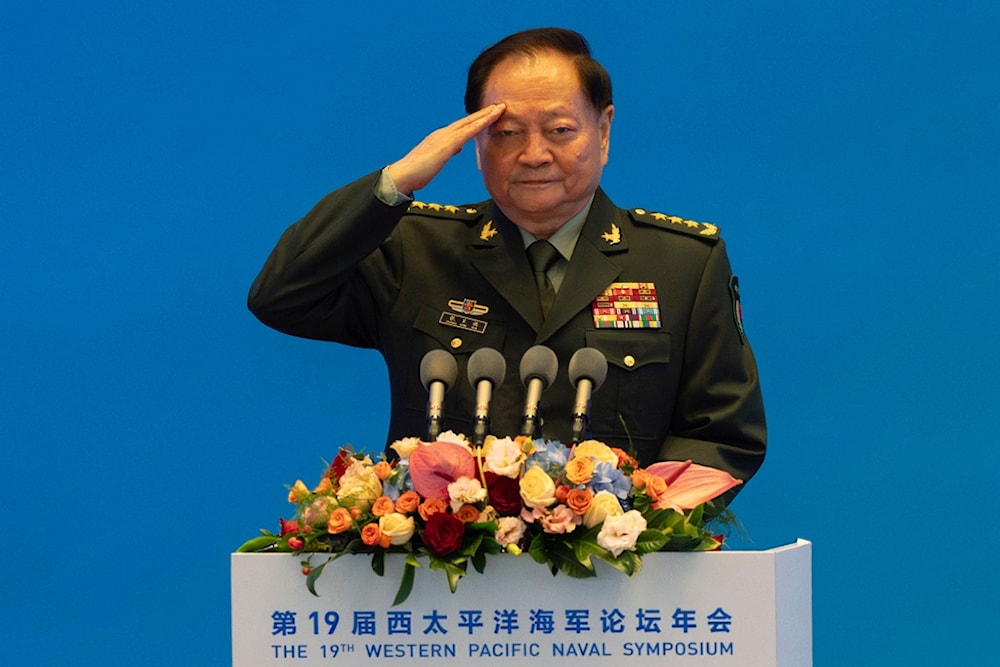China has no intention to engage in Cold, Hot War: Senior official
Zhang Youxia expresses the Chinese military's willingness to strengthen trust at all levels with the navies of other countries.
-

Zhang Youxia, vice chairman of the CPC Central Military Commission, salutes before addressing the Western Pacific Navy Symposium in Qingdao, eastern China's Shandong province on Monday, April 22, 2024. (AP)
China respects peace and has no intention to engage in cold or hot war with any country, but its territorial sovereignty cannot be violated, the deputy chairman of China’s Central Military Commission, Zhang Youxia, affirmed on Monday.
"The Chinese people respect peace and do not intend to engage in cold or hot war with any country, but China's territorial sovereignty cannot be infringed upon and its core interests cannot be contested," Zhang said at the opening ceremony of the 19th meeting of the Western Pacific Naval Symposium forum.
The senior official expressed the Chinese military's willingness to strengthen mutual understanding and trust at all levels with the navies of other countries.
"We must firmly reject the Cold War mentality, the politics of force is not favored, and division and confrontation have no way out," he stressed.
Security concerns and the legitimate interests of all countries must be respected, Zhang added.
The 19th meeting of the Western Pacific Naval Symposium forum is being held from April 21-24 in China’s Qingdao. Organized by the Chinese navy, the event is attended by more than 180 representatives of high-level delegations from 29 countries, including Russia, Australia, France, India, Indonesia, Japan, the United States, and the United Kingdom.
Zhang's remarks come as thousands of Filipino and American troops kicked off Monday joint military drills that will go beyond the Philippines' territorial waters in a first.
The annual drills – codenamed Balikatan, or "shoulder to shoulder" in Tagalog – will be concentrated in the northern and western parts of the archipelago nation, near the potential flashpoints of the South China Sea and Taiwan.
China claims almost the entire waterway, a key route for international trade, and also considers Taiwan to be part of its territory.
In an attempt to counter Chinese influence, the United States has been reinforcing alliances with countries in the Asia-Pacific region, including the Philippines.
Washington and Manila are treaty allies and have deepened their defense cooperation since Philippine President Ferdinand Marcos took office in 2022.
The Philippines' proximity to the South China Sea and Taiwan makes it a key partner for the United States in the event of a confrontation with China.
The Philippine Coast Guard will join Balikatan for the first time following several confrontations between its vessels and the China Coast Guard.
The United States has deployed its Standard Missile-6 (SM-6) guided missiles to the Philippines for Balikatan, but Logico claimed the weapons would not be used in the drills.
China's Foreign Ministry has accused the United States of "stoking military confrontation" and warned the Philippines to "stop sliding down the wrong path."
The drills, which will run until May 10, will involve around 11,000 American and 5,000 Filipino troops, as well as Australian and French military personnel.
Read more: China, US defense chiefs break 18-month streak, discuss ties, Taiwan

 3 Min Read
3 Min Read








